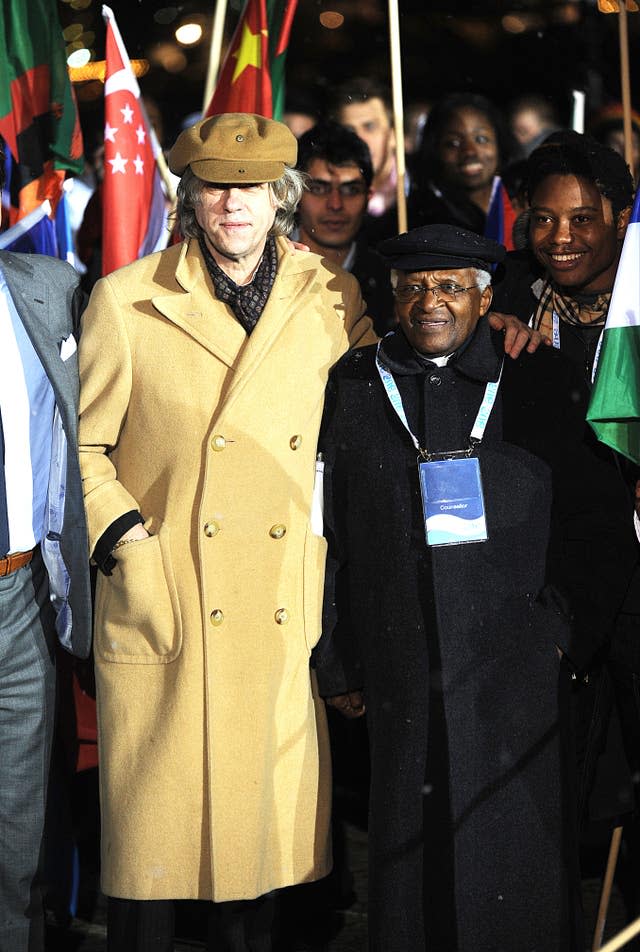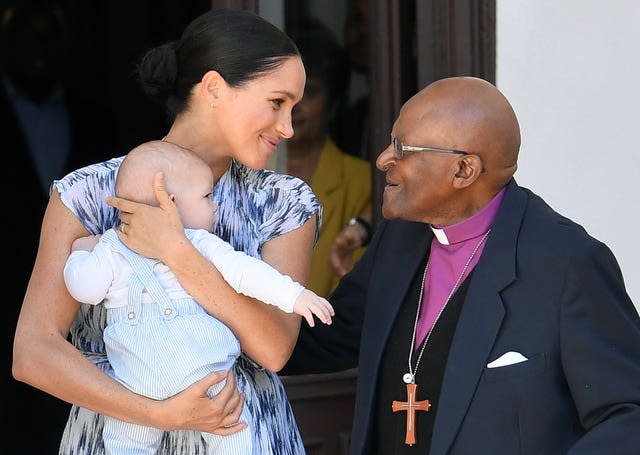Archbishop Desmond Tutu: The resolute and tireless campaigner against injustice
Desmond Tutu, a resolute, tireless and confirmed fighter against apartheid, shocked the South African government of the day by his ordination as the first black Anglican Archbishop of Cape Town in 1986.
He was a courageous political campaigner, some would say firebrand, against the blatant injustices meted out to the non-white population of South Africa.
But his homely manner, his obvious personal kindness and his wit endeared him more than ever to the proponents worldwide of the anti-apartheid cause.

Tutu, a Nobel Prize winner, showed no fear of the brutal South African regime which seemed almost permanently embarrassed by a man whose supreme standing in the church made it virtually impossible for them to bully or harass him.
He once wrote a letter to then prime minister John Vorster, warning the situation in South Africa was “a powder barrel that can explode at any time”.
The letter was never answered.
It is said that he did as much as anyone, including even Nelson Mandela, to bring apartheid in South Africa to its knees, leading to the formation of a democratically elected government under Mandela himself.
Tutu was generally credited with coining the term Rainbow Nation as a metaphor to describe the post-apartheid South Africa after 1994 under African National Congress rule.

In 1996, the year he stepped down as Archbishop of Cape Town, Tutu was diagnosed with prostate cancer.
But this in no way weakened his sense of public spiritedness or diminished his commitment to the Christian cause, of which he was such a beacon.
He became the honorary archbishop emeritus of the coastal city he had served.
He was born in Klerksdorp, Transvaal, on October 7 1931, and moved to Johannesburg at the age of 12.

He wanted to be a physician but that was beyond his family’s means and he became a teacher instead.
He was ordained as an Anglican priest in 1960, becoming chaplain at the University of Fort Hare, a hotbed of dissent and one of the few quality universities for black African students.
He left that post in 1962 and travelled to King’s College London, where he received degrees in theology.
Tutu returned to South Africa in 1967 and, until 1972, used his lectures to highlight the plight of the African population.

He returned to the UK in 1972 as vice-director of the Theological Education Fund of the World Council of Churches, but went back to South Africa to become the first African to be appointed Anglican Dean of Johannesburg.
His sterling work in the cause of the anti-apartheid movement led to his receiving numerous doctorates and academic awards from all over the world.
However, although he was firm in denouncing South Africa’s white-rule government, he was also harsh in his criticism of the violent tactics of some anti-apartheid groups, such as the African National Congress.
He denounced terrorism and Communism and was awarded the Nobel Peace Prize in October 1984 for his “role as a unifying leader figure in the campaign to resolve the problem of apartheid in South Africa”.

Tutu visited Birmingham in 1989 as part of the city-wide Christian Celebrations and he and his wife saw a number of establishments, including the Nelson Mandela School in Sparkbrook.
After apartheid fell, he headed the Truth and Reconciliation Commission for which he was awarded the Sydney Peace Prize in 1999.
That was the year during which he gave the annual Wilberforce Lecture in Hull, commemorating the life and achievements of the anti-slavery campaigner William Wilberforce, who originated in the city. He was presented with the freedom of Hull.
He returned to the UK yet again in 2004 as visiting professor in Post-Conflict Societies at King’s College London.
Tutu, unlike many African churchmen, opposed Christian discrimination against homosexuals.
The archbishop said: “I am deeply saddened at a time when we’ve got such huge problems that we should invest so much time and energy in this issue.

“I think God is weeping.”
He also criticised human rights abuses in Zimbabwe, describing then president Robert Mugabe as “a caricature of an African dictator”.
He equally criticised the South African government’s policy of “quiet diplomacy” towards Zimbabwe.
Tutu has made controversial statements involving Israel, once saying Zionism had “very many parallels with racism”.
He also likened Israel’s treatment of Palestinians to the treatment of black South Africans under apartheid.
He eventually retired from public life in 2011 but he continued to speak out.

The following year he called for Tony Blair and former US president George W Bush to be taken to the International Court of Justice in The Hague for their role in the invasion and occupation of Iraq.
Writing in the Observer, he accused them of lying about weapons of mass destruction and that the invasion has left the world more destabilised and more divided “than any other conflict in history”.
In 2015, he launched a change.org petition urging then US president Barack Obama and UN secretary general Ban Ki-Moon to create a world solely reliant on renewable energy by 2050.
The archbishop stepped down as Oxfam ambassador in 2018, following the charity’s sex scandal.

He was said to have been “deeply disappointed” by the allegations of “immorality and possible criminality involving humanitarian workers linked to the charity”.
Tutu later opposed then US president Donald Trump’s decision to recognise Jerusalem as the official capital of Israel.
In 2019, he met the Duke and Duchess of Sussex and their son Archie during their tour to southern Africa.
Archbishop Tutu married Leah Nomali in 1955 and the couple had four children.

 Yahoo News
Yahoo News 
